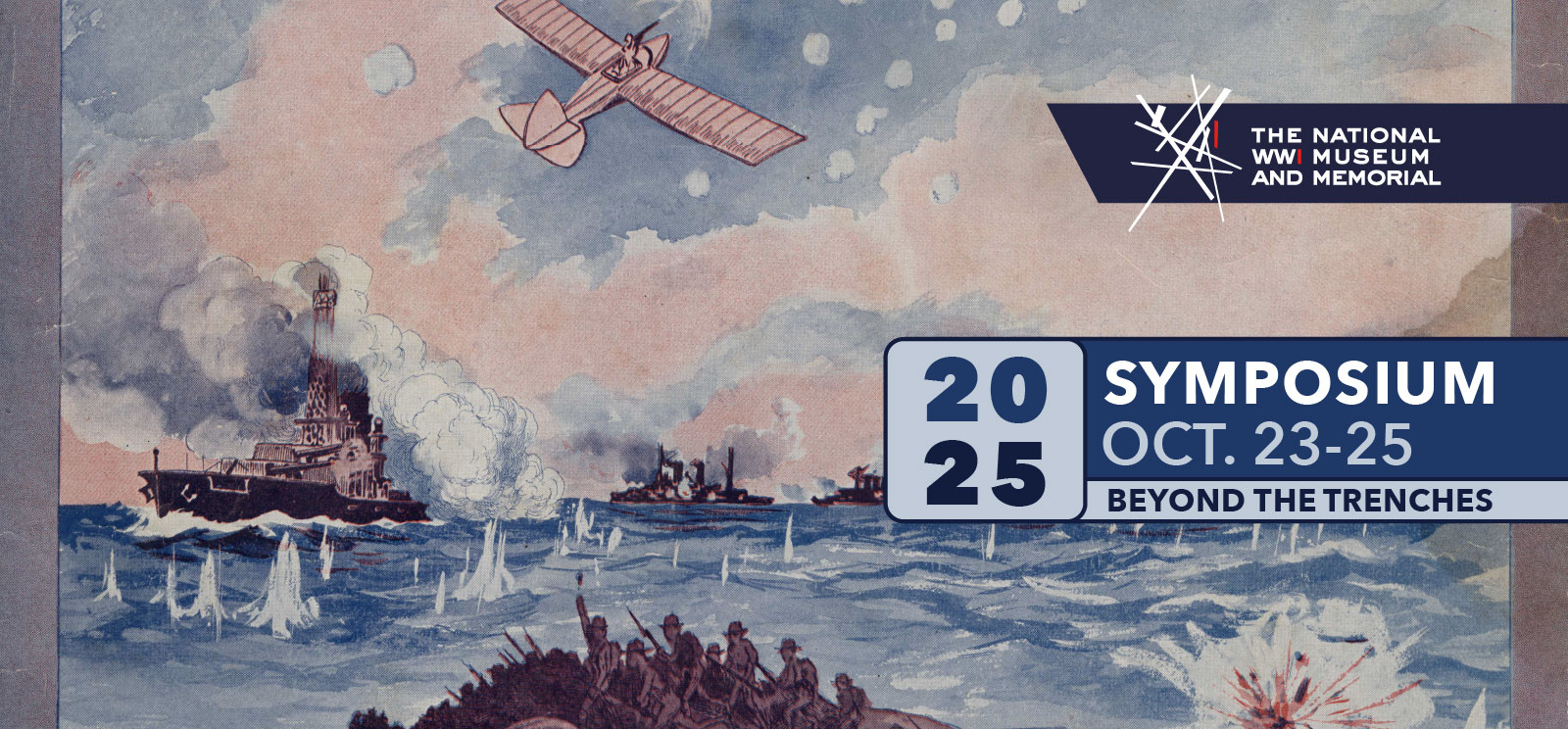
2025 Symposium
Beyond the Trenches: Indirect Approaches and Irregular Warfare in WWI
Thursday, Oct. 23 – Saturday, Oct. 25, 2025
Above the clouds and under choppy waters, World War I was not only fought in the trenches.
Riflemen “going over the top” is the iconic battle image of World War I.
But as large armies fought for mere meters of dirt and mud along the Western Front, strategists increasingly turned to finding other ways to gain advantages over enemies. WWI veteran and British military theorist B. H. Liddell Hart advanced the idea of an “indirect approach” in battle. Aviation technology, tunneling and mining, proxy fighters, insurgents and spies – these all achieved flexibility and surprised the enemy.
Explore the wide variety of battle strategies beyond trenches, including:
- Diplomatic, economic and information warfare
- Proxy forces and irregular warfare in the Age of Empire
- New technologies: aviation, tunneling and mining
- Maritime operations in support of land forces
- Environmental and geographic considerations
Who should attend?
All who have a general or professional interest in the periods prior to, during and after World War I. We especially recommend this symposium to educators, historians and members of organizations that study these periods.
Hybrid Symposium – hosted online and in-person at the Museum and Memorial
Speakers
Digital Summit (Thursday, Oct. 23)
Peter Doyle
Peter Doyle is a military historian specializing in the understanding of military terrain in the two world wars, with special reference to Gallipoli and the Western Front. He is also an author who focuses on the British experience of war – and the material culture of war – having written numerous books, articles and chapters on these topics. A member of the British Commission of Military History and the Parliamentary All Party War Graves Group, he is a Fellow of the Royal Historical Society. Emeritus Professor of history at London South Bank University, he has taught First World War trench warfare at Goldsmiths, University of London and was twice invited to the U.S. Military Academy, West Point to speak on Gallipoli.
“Terrain Advantage: Gallipoli, 1915”
The Gallipoli campaign continues to dominate any discussion of littoral operations in the First World War, specifically amphibious landing. This talk considers the effectiveness of the Ottoman Empire’s use of terrain in land defense against the Allied offensive in the Dardanelles.
Anne Samson
Anne Samson, Ph.D., FRHS, is an independent historian and coordinator of the Great War in Africa Association (https://gweaa.com). She has published widely on World War I in Africa. Samson grew up in South Africa and completed her Bachelor’s degree at UNISA before relocating to London in 1996, where she completed her Master’s in Twentieth Century History at University of Westminster, London and her Ph.D. at Royal Holloway, University of London. A Fellow of the Royal Historical Society and a member of the OMRS, Samson started TSL Publications, a publishing company working in partnership with authors, which includes an imprint for the Great War in Africa Association. Her most recent book, “Kitchener: The Man Not the Myth,” is inspired by Lord Kitchener’s desire to keep Africa out of the 1914-1918 war.
“Across a Continent: WWI in Africa”
An under-studied continent of the Great War, Africa was the site for numerous theatres of battle between the Allied and Central Powers. This talk will elaborate on Africa’s involvement in the global conflict.
Danielle Wirsansky
Danielle Wirsansky is a Ph.D. Candidate in History at Florida State University, where she serves as the President of the History Graduate Student Association. Her research examines the intersections of intelligence history, gender, and wartime experiences, with a focus on recruitment, training, and operations of women in intelligence services. Wirsansky has presented her research at the Society for Military History Annual Meeting, where she was presented with the Russell F. Weigley Travel Award. She is a PEO Scholar and the recipient of the Walbolt Fellowship, the Elie Wiesel Social Action Fellowship, and a Fulbright Award. Her work has been published in Intelligence and National Security; Sequitur; the Florida Conference of Historians Journal; and the anthology of Gender Diversity and Inclusion: Contemporary and Historical Perspectives.
“The Desert Queen and the White Mouse: Gertrude Bell, Nancy Wake and Women in Irregular Warfare”
Female spies are often overlooked in First World War scholarship, with few exceptions – among them Gertrude Bell. This talk investigates the evolution of women’s roles in intelligence work during the World Wars, arguing that the strategic successes of women like Bell in WWI made it possible for intelligence agencies to embrace more autonomous and operationally significant female agents in WWII.
Fred Vogt
Fred Vogt II is a retired senior executive who holds several degrees from the Missouri University of Science and Technology. His corporate career included responsibilities for both domestic and international businesses. He has demonstrated deep commitment to professional excellence and community impact through service on professional boards, advocacy for women’s self-defense, and personal work in the creative arts. Vogt has explored the battlefields of the First World War starting in the mid 1960s, with a renewed focus beginning in 2015. Since 2020, he has pursued intensive research and delivered presentations on multiple aspects of the conflict, with particular expertise in the combat, technology and experiences surrounding Medal of Honor recipient John Lewis Barkley.
Chris Juergens
Chris Juergens is the Senior Curator of the Museum and Memorial, hired in 2024 as the first Full Curator. He develops, refines and interprets the collection; plans exhibits; conducts scholarly research; and provides public programming. Juergens attended SUNY Binghamton: triple majoring as an undergraduate in History, Russian Area Studies and Comparative Literature, as well as attaining an M.A. in History. He holds a Ph.D. in History from Florida State University.
“How to Stop a Tank: Countering New Technologies in WWI”
The British surprised the Germans at the Somme on Sept. 15, 1916 with the introduction of tanks. This talk studies Germany’s response and the development of anti-tank mines.
Pierre Legrand
Pierre Legrand is a geologist and assistant-archaeologist specializing in the influence of landscape and geology on modern conflicts. The founder of Compass Research, his research examines the remains of modern conflicts, particularly the World Wars, through an interdisciplinary approach combining archaeological excavation, geomorphology, soil micromorphology and geological analysis. Since 2018, he has conducted fieldwork across Belgium and France, including trench systems, burial recovery, and battlefield landscape studies, often in collaboration with the CWGC, ONAC-VG and VDK. Currently, he leads a multidisciplinary research project employing LIDAR, UAV-based imaging, geophysics, and soil analysis on the battlefield of Waterloo. His ongoing works on battlefields investigate geological and geomorphological data, to improve the understanding of the relation between conflict and landscapes.
“German Underground Warfare in Flanders”
Combining historical archives and military engineering records with geological analysis, this talk explores the evolution of German underground warfare in Flanders – from rudimentary, reactive efforts in 1915 to sophisticated, large-scale mining operations by 1916.
Nikki Dean
Nikki Dean is a military educator and interpreter at the National WWI Museum and Memorial, providing research support to military educational and professional development content. A retiree from the U.S. Army, Dean served for over 21 years as an aviation officer and was stationed throughout the United States, in Germany and in the Republic of Korea, and is a veteran of the recent Iraq and Afghanistan wars. Her last assignment with the U.S. Army was with the Combined Arms Center in Fort Leavenworth, developing command and control doctrine and hosting the Breaking Doctrine podcast. She is a current Ph.D. student at the University of Kansas, researching the intersection of armed conflict and cultural collections and the enduring impact of the post-WWI treaties of peace and the Inter-Allied Reparations Commission.
“Defining Indirect Approach and Irregular Warfare”
Using the lens of modern military doctrine, this talk establishes common working definitions for audiences unfamiliar with the concepts and application of Indirect Approach and Irregular Warfare in World War I.
Christine Hanna
Christine Hanna teaches social studies at ASTEC Charter High School in Oklahoma City, Oklahoma. Specializing in graduate-level literacy and classroom instruction, Hanna has led workshops on “Literacy Strategies for Social Studies” and “Inquiry Arc in Social Studies” and is a National History Day Sponsor. Hanna has participated in the Transatlantic Outreach Program and the Belfer National Conference on the Holocaust. She earned her Master of Science in Teaching, Learning, and Leadership from Oklahoma State University.
“Teaching WWI: Economic Statecraft”
Comparing the effects of peace treaties and post-war decisions on the economic stability of belligerents, this talk will approach the necessary skills and appropriate language to discuss economic warfare with world history high school students.
Kate Imy
Kate Imy is an Associate Professor and Fellow of the Kerr Chair at the University of Texas. Her first book, “Faithful Fighters: Identity and Power in the British Indian Army” explored ties between South Asian anti-colonial activism and colonial military service. It won the Stansky Prize of the North American Conference of British Studies and the American Historical Association’s Pacific Coast Branch Book Award. Her second book, “Losing Hearts and Minds: Race, War, and Empire in Singapore and Malaya, 1915-1960” is the inaugural title of the new Stanford British Histories series. Dr. Imy’s research has been supported by a Fulbright fellowship to India, a Lee Kong Chian Fellowship from the National University of Singapore and Stanford University, two Critical Language Scholarships to study Hindi and Urdu in India, and a fellowship from the Institute of Historical Research in London.
“Spies, Ships, and Swamps: The Singapore Mutiny and the Fight Against Colonialism in Southeast Asia”
When members of the 5th Light Infantry – a regiment of 818 South Asian men – rebelled at Alexandra Barracks on Feb. 15, 1915, it unleashed an immediate and multifaceted colonial response that stretched the limits of conventional military thinking. Some soldiers raided the magazine, while others went to the POW camp at Tanglin and released German prisoners of war. Many others retreated to swamps and jungles, attempting to blend into the multiethnic crowds of Singapore. In response, British leaders mobilized surveillance, patrols, and rituals of confinement that alienated and brutalized soldiers and civilians alike – underlining the frailty of colonial militarism.
Robert Feeney
Robert Feeney currently serves as the Manuscript and Archives Assistant for Florida Atlantic University’s esteemed Wimberly Library. Currently pursuing his Ph.D. in the Department of Comparative Studies, his research focuses on the evolving intersection of technology and history. He holds a Bachelor of Arts degree in Anthropology and a Master of Arts degree in History; both obtained from Florida Atlantic University.
“Wireless Telegraphy in Aviation”
Leading up to World War I, primary communications technology consisted of wired telegraphs, telephone, pigeons, signal flags and heliograph. This talk will trace the development of wireless telegraphy (radio) in aviation and its use by the American Expeditionary Forces and the U.S. Signal Corps.
John Curatola
John Curatola, Ph.D., is the Samuel Zemurray Stone Senior Historian at the Jenny Craig Institute for the Study of War and Democracy. A U.S. Marine Corps officer of 22 years, he graduated from the University of Nebraska and is a veteran of Operation Provide Hope in Somalia, Operation Iraqi Freedom and the 2005 Indian Ocean tsunami relief effort. With a Ph.D. from the University of Kansas, Curatola’s research focuses on World War II, airpower and the early Cold War period. Previously, he taught history at the U.S. Army Command and General Staff College at Fort Leavenworth, Kansas. Curatola’s works can be found in compendium books, popular magazines and academic journals. His first two books, “Bigger Bombs for a Brighter Tomorrow” and “Autumn of Our Discontent,” assess U.S. national security and nuclear capabilities in the early Cold War period. Curatola's most recent work, “Armies Afloat: How the Development of Amphibious Operations in Europe Helped Win World War II,” was published by University of Kansas Press in Spring 2025.
“The Air War”
The First World War saw military aviation’s importance grow by leaps and bounds. When the war started, many questioned its role, value and presence on the battlefield. However, aircraft and airmen soon proved their worth as the roles, missions and technology in this third dimension grew exponentially. This talk addresses the genesis of military aviation, its growing importance during the conflict, the men and machines involved and a summary on the development of air forces. Lastly, Curatola will address the legacy of the WWI air war.
Speakers
Symposium (Friday-Saturday, Oct. 24-25)
Mark Stout
Mark Stout is a scholar-practitioner in intelligence and security studies. The former Historian and Curator for the International Spy Museum, his research focuses largely on American intelligence during the First World War era and the early Cold War, particularly its cultural aspects.
Before retiring from Johns Hopkins University where he directed an M.A. program in Global Security Studies, Stout co-founded and presided as President of the North American Society for Intelligence History (now the Society for Intelligence History). He also spent 21-years in the national security community – including 13 years with the State Department’s Bureau of Intelligence and Research and the Central Intelligence Agency.
Stout is on the editorial boards of Georgetown University Press’s “Studies in Intelligence History and Concise Histories of Intelligence” series. He has authored and edited several books and articles on intelligence, strategic studies, and military history, with works published in Intelligence and National Security, Cold War History, the Journal of Strategic Studies, Studies in Intelligence, and other journals.
“American Intelligence in World War I: Behind and Beyond the Front Lines”
Using the understanding of modern war held at the time by the US military and the US Government, this talk will focus on American intelligence operations around the globe and their attempt to contribute to the prosecution of the war. Considering operations of the State Department’s Bureau of Secret Intelligence, the Office of Naval Intelligence, the War Department’s Military Intelligence Division and the American Expeditionary Forces’ G-2, these organizations were proved to be far more active in espionage, covert action, and counterintelligence operations around the globe, both unilaterally and in cooperation with Allies intelligence services and even neutral countries.
Sean Seyer
Dr. Sean Seyer is an Associate Professor of History with the University of Kansas. As an historian of technology, his research interests revolve around how technologies arise from and shape cultural values and societal norms. His research illustrates how the use of technologies in all their various forms constitute political acts that can profoundly affect the lives of an untold number of individuals beyond the end user. In his most recent publication, “Sovereign Skies: The Origins of American Civil Aviation Policy” (Johns Hopkins University Press, 2021), Seyer analyzes how numerous interest groups in the United States – politicians, military officials, civilian bureaucrats, industry leaders, lawyers, and engineers – struggled to regulate the new technology of the airplane within America’s federalist system in the years immediately following World War I. He is currently researching and writing on the “professionalization” of aviation from the Wright brothers’ first flight until the end of World War II, a period in which the field transformed from one of individual inventors and infinite possibility to one defined by tightly set standards, rigid expectations, and an unprecedented symbiotic relationship with the federal government.
“Aviation Technology”
Tracking the development of American aviation and airspace technology during the First World War, this talk posits key insights on the war’s legacy in the airspace and aviation industry today.
Christopher Warren
Christopher Warren has worked at the Museum and Memorial as Vice President of Curatorial Affairs and Chief Curator since 2022. He presides over the collections and curatorial team, which is responsible for acquisitions of new objects, curating, production, and management of exhibitions, collections digitization, object loans, and interpreting and organizing the Museum collection. He regularly publishes in scholarly and lay media, teaches university courses, and develops presentations for public programs. Warren holds a B.A. in History from the University of Kansas, an M.A. in History from George Mason University, a J.D. in Law from the George Mason University School of Law, and a Ph.D. in History from George Mason University.
“Naval Blockade”
Focusing on the British distant blockade of Germany, Austria-Hungary, and the Ottoman Empire, this talk explores the development, operation and impact of naval blockades during World War I and assess their influence on naval doctrine and rules of engagement.
Alex Holowicki
Alex Holowicki is an Associate Professor of History at San Diego Mesa College, where he teaches courses in World History and Asian Civilizations. He has also taught at the University of Hawaiʻi at Mānoa and the University of Hawaiʻi Maui College. He earned his PhD in History from the University of Hawai‘i at Mānoa in 2017, specializing in modern American and world history. His doctoral dissertation explores the relationship between film and peacekeeping during and after the First World War.
A former historian for the Hawai‘i World War I Centennial Task Force and a student affiliate of the East-West Center, Holowicki has published on the global dimensions of the First World War in World History Connected and presented at numerous professional conferences, including the International Society of First World War Studies and the World History Association. His forthcoming article, “German Pirates and Hawaiian Patriots: The Sinking of the SS Aztec and the United States Entry into the First World War,” will appear in World History Connected in Fall 2025. He is currently at work on his first monograph, “Native Hawaiians and World War I,” under contract with Palgrave Macmillan and slated for publication in 2027.
“German Submarine Warfare in Hawaiʻi”
Using case studies, specifically the sinking of ships like the Aztec, Rockingham, and Kansan, this talk explores how Germany’s submarine warfare was leveraged in Hawaiʻi to promote Americanization and military recruitment among Native Hawaiians.
Geoff Babb
Geoff Babb is a retired U.S. Army Special Forces Lieutenant Colonel currently serving as an Associate Professor of History at the U.S. Command and General Staff College in Fort Leavenworth, Kansas. He was commissioned from Bowdoin College in Brunswick, Maine. Babb served as a U.S. Army Military Intelligence Officer in Washington, DC and after completing education as a China Foreign Area Officer, he was then assigned to Joint and Army Headquarters in Hawaii. An author of numerous articles on East Asia, he earned a Masters in East Asian Languages and Cultures, and a Doctorate in History from the University of Kansas.
“A Cold War: Siberia in WWI”
Erupting in civil unrest, Russia’s participation as an Allied Power in World War I was interrupted, but despite its domestic conflict, its territories continued to garner attention from the war’s belligerents. This talk will explore international action in Siberia.
Candice Millard
Candice Millard is the author of four New York Times bestselling books. She is the recipient of the 2017 BIO Award, and her work has appeared in the New York Times Book Review, Washington Post Book World, the Guardian, National Geographic and Time magazine. Her first book, “The River of Doubt: Theodore Roosevelt's Darkest Journey,” was a Barnes & Noble Discover Great New Writers selection and a Book Sense Pick, won the William Rockhill Nelson Award, was a finalist for the Quill Awards, and has been published in multiple foreign editions. “Destiny of the Republic: A Tale of Madness, Medicine & the Murder of a President,” won the Edgar Award for Best Fact Crime, the PEN Center USA award for Research Nonfiction, the One Book-One Lincoln Award, the Ohioana Award, and the Kansas Notable Book Award.
“Hero of the Empire: The Boer War, a Daring Escape and the Making of Winston Churchill,” was an Indie Next pick, a top ten critics pick by the New York Times and named Amazon’s number one history book of 2016. Millard's most recent book, released in May of 2022, is “River of the Gods: Genius, Courage, and Betrayal in the Search for the Source of the Nile.”
Keynote Dinner Lecture
This talk will delve into Candice Millard’s newest project.
Phillip Dehne
Phillip Dehne is the Executive Dean at St. Joseph’s College in Brooklyn, New York. His instruction focuses on British, European and Global History. He has authored a number of publications related to economic conflict during the First World War, including two books, “After the Great War: Economic Warfare and the Promise of Peace in Paris 1919” and “On the Far Western Front: Britain’s First World War in South America.”
“Economics Warfare”
The global nature of economic conflict during the First World War was unprecedented. This talk traces its enduring impact on the future of economic warfare after 1919.
James LaFratta
CSM James A. LaFratta currently serves as the Command Sergeant Major of the U.S. Army Combined Arms Support Command, Sustainment Center of Excellence. He enlisted in the U.S. Army in February 1993 as a Wheeled Vehicle Repairer (63W). His military education includes all levels of non-commissioned education, as well as the Pre-Command Courses for Brigade and Battalion leadership, the U.S. Army Sergeant's Major Course, and the Nominative Leader’s Course at the U.S. Army War College in Carlisle Barracks, Pennsylvania. CSM LaFratta is a graduate of American Public University, West Virginia with a Bachelor of Arts Degree in Military History and a graduate of Norwich University, Vermont with a Masters of Military History Degree. His research focuses on the intersections of mountain and alpine warfare, combat sustainment, and base supply and defense. His recent journal publications include “Rediscovering the Lost Art of Base Defense” for Army Sustainment Journal and a forthcoming edited chapter, “Sustainment in Mountain Warfare: Supporting the Fight in Mountainous Terrain.” CSM LaFratta is a veteran of both Iraq and Afghanistan.
“The Italian Front”
This talk will explore an often-overlooked theater of the First World War – Italy – and explore the impact of alpine terrain and weather on tactical sustainment of forces. This research provides a valuable lens for considering the enduring lessons of mountain warfare on maneuver formations and the additional demands needed to sustain maneuver forces when mountains, snow, ice and extreme cold combine to form an enemy unto itself.
David Stone
David Stone began his research on Russian and Soviet military history at the beginning of the 1990s, just when previously inaccessible archives and historical documents first became available to scholars. Since that time, he has written extensively on the role of war in Russian history while teaching first in the History Department at Kansas State University and currently in the Strategy and Policy Department at the Naval War College. His work has been recognized with awards and prizes from the Historical Society, the History News Network, the American Association for the Advancement of Slavic Studies, and the Society for Military History.
“Russia and Insurgent Warfare”
Delving into uprisings from Soviet suppression in Central Asia, this talk will explore the use of partisan and insurgent warfare.
Schedule
All times are Central Standard.
Thursday, Oct. 23
- 10 a.m. | “Welcome” with Matthew Naylor and “Terrain Advantage: Gallipoli, 1915” with Peter Doyle
- 10:30 a.m. | “The Desert Queen and the White Mouse” with Danielle Wirsansky
- 11 a.m. | “Across a Continent: WWI in Africa” with Anne Samson
- 11:30 a.m. | “How to Stop a Tank” with Chris Juergens and Fred Vogt
- 11:45 a.m. | “German Underground Warfare in Flanders” with Pierre Legrand
- 12:15 p.m. | “Defining Irregular Warfare” with Nikki Dean
- 12:30 p.m. | “Teaching WWI: Economic Statecraft” with Christine Hanna
- 12:45 p.m. | “Spies, Ships, and Swamps: The Singapore Mutiny and the Fight Against Colonialism in Southeast Asia” with Kate Imy
- 1:15 p.m. | “Wireless Telegraphy in Aviation” with Robert Feeney
- 1:30 p.m. | “The Air War” with John Curatola
- 2 p.m. | Closing Remarks
Friday, Oct. 24
- 10 a.m.-5 p.m. | Museum and Memorial open
- 8:30 a.m. | Shuttle service from the Hampton Inn Hotel to the Museum and Memorial
- 9-9:15 a.m. | Welcome | Matthew Naylor
- 9:15-10:15 a.m. | Session 1 | Mark Stout, “American Intelligence in World War I”
- 10:15-10:30 a.m. | Break | Museum Store opens
- 10:30-11:30 a.m. | Session 2 | Sean Seyer, “Aviation Technology”
- 11:30 a.m.-12:30 p.m. | Session 3 | Christopher Warren, “Naval Blockade”
- 12:30-2 p.m. | Lunch at the Museum and Memorial | Book Signing
- 2-3 p.m. | Session 4 | Alex Holowicki, “German Submarine Warfare in Hawaiʻi”
- 3-4 p.m. | Session 5 | Geoff Babb, “A Cold War: Siberia in WWI”
- 4 p.m. | Break | Galleries and Museum Store open until 5 p.m.
- 5 p.m. | Shuttle service from the Museum and Memorial to offsite dinner
- 5:30-7:30 p.m. | Dinner at Union Station with Candice Millard
- 7:30 p.m. | Shuttle service to the Hampton Inn Hotel
Saturday, Oct. 25
- 10 a.m.-5 p.m. | Museum and Memorial open
- 8-8:30 a.m. | Shuttle service from the Hampton Inn Hotel to the Museum and Memorial
- 8:30 a.m. | Doors open
- 9-10 a.m. | Session 6 | Phillip Dehne, “Economic Warfare”
- 10-10:15 a.m. | Break
- 10:15-11:15 a.m. | Session 7 | James LaFratta, “The Italian Front”
- 11:15 a.m.-12:15 p.m. | Session 9 | David Stone, “Russia and Insurgent Warfare”
- 12:15-12:30 p.m. | Closing Remarks | Lora Vogt
- 12:30-1 p.m. | Lunch at the Museum and Memorial
- 12:30-1:30 p.m. | Shuttle service from the Museum and Memorial to the Hampton Inn Hotel
Register
The 2025 Symposium will be hybrid, hosting speakers and guests both in-person and online. In-person sessions will be livestreamed for online attendees, who can also participate in live Q&A.
In-person registration includes access to the galleries, light breakfasts, lunches and admission to the Friday evening dinner. In-person symposium attendees who wish to bring guests to the Friday evening dinner will need to buy additional reception tickets for their guests.
Online symposium attendees will receive digital access to all sessions.
Can’t attend the whole symposium, but still want to see a few sessions? Contact us at travel@theworldwar.org or 816.888.8153.
NEW! For Federal Workers:
Furloughed federal workers are invited to attend the symposium onsite for $75 (includes meals and drinks) or online for free.
Use code FEDFRIEND at checkout to redeem your special $75 onsite ticket. Use code FEDFREE to tune in for free online.
In-Person Registration
- Online and in-person lectures on Friday and Saturday at the Museum and Memorial
- Online and in-person admission to the Digital Summit Watch Party on Thursday at the Museum and Memorial
- Complimentary breakfast and lunch on Friday and Saturday
- Complimentary dinner on Friday evening
- Access to all galleries and the Liberty Memorial Tower
- $5 off $20 in-person purchases at the Museum Store. Cannot be combined with other discounts.
| Early Bird Rate (until Sept. 29) | $225 |
| Full Symposium (after Sept. 29) | $275 |
| Active Museum Volunteer | $120 |
| Teacher/Student | $75 |
| Furloughed Federal Worker | $75 (use code FEDFRIEND at checkout) |
Online Access Only
- Live online access to all sessions Thursday-Saturday, including the Thursday Digital Summit
| Online Access Only | $75 |
| Furloughed Federal Worker | FREE (use code FEDFREE at checkout) |
Friday Dinner Only
- Admission to the Friday evening dinner
| Friday Dinner Only | $50 |
Thursday Digital Summit Watch Party Only
- In-person admission to the Digital Summit Watch Party on Thursday at the Museum and Memorial
| Thursday Digital Summit Watch Party Only | $50 |
Hotel Information
A discounted block of rooms is set aside at the Hampton Inn & Suites Kansas City - Country Club Plaza. Please use this link to book your room at the special Symposium rate or contact the hotel for further information. To receive the special rate, reservations must be completed by Monday, Oct. 6, 2025.
Refund Policy
The Museum and Memorial will honor a 50 percent refund on registration fees until Oct. 6. On Oct. 6 and beyond, no refunds will be granted. Attendees may contact Mark Gunter at 816.888.8103 to request a refund.
Ready to register?
Hosted in Partnership with:
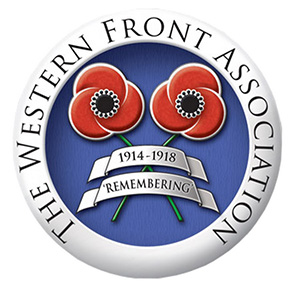
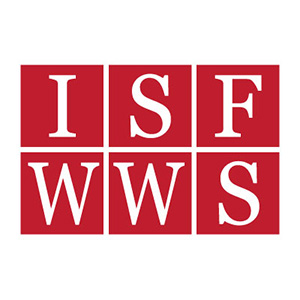
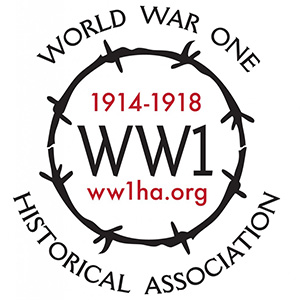
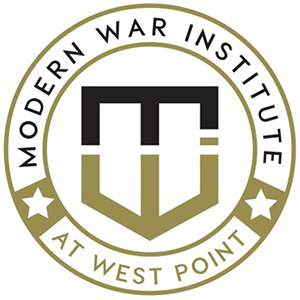
This program is supported in part by the City of Kansas City, Missouri Neighborhood Tourist Development Fund.

Past Symposia
War and Morality Digital Summit
Nov. 15-16, 2024
As the defining event of the 20th century, how does World War I inform our understanding of “just” war?
Despite the efforts of multinational coalitions like the Triple Entente and League of Nations, crises have persisted throughout the 20th and 21st centuries, revealing the strategic and ethical complexities that define modern conflict and its impact on our global society.
Milestones and Cornerstones
Oct. 27-28, 2023
1923 ushered in a new era of military commemoration in the wake of WWI. Remembrance became less about victory and more about peace: monuments and cemeteries, enshrining the memory of those who served and sacrificed, were built not as trophies of the past but as touchstones for the future.
Shifting Tides: Citizenship in a World of Conflict
Nov. 4-5, 2022
Engulfed by four years of total war, the world emerged transformed. Amid the unfamiliarity of wartime and post-war societies, populations were both bound by tradition and buoyed by bids to reshape political, economic and social landscapes.
Fractured Fronts
Oct. 29-30, 2021
As the Great War “ended,” many questions confronted the global community that remain just as pressing today as they did one hundred years ago: How does war impact how we understand ourselves and our place in the world? What does it mean to “come home” when the places and people you called home have changed irrevocably?
1919: Peace?
Nov. 1-2, 2019
1919 was a year of sweeping changes in a landscape dramatically altered by years of unrelenting warfare. Leaders advanced towards elusive peace amid political instability, economic uncertainty and social conflict. As terms of the Treaty of Versailles were negotiated, a world reordered faced decisions and realities that would leave a complex legacy.
1918: Crucible of War
Nov. 1-3, 2018
Explore the irrevocable changes five years of cataclysmic conflict wrought on the global stage. As borders were literally and figuratively redrawn, Allies celebrated a victory and the world came to terms with the irreparable devastation and losses of the “war to end all wars.”
1917: America Joins the Fight
Nov. 3-4, 2017
The United States emerged from its traditional isolation in 1917 and began to take its place in the forefront of world affairs. As the U.S. mobilized its farms, industries, and formed a large army, it confronted curtailing civil liberties and faced a possible demand for equity in return for support.
Remembering Muted Voices
Oct. 19-22, 2017
Although the U.S. actively took part in the conflict for only 18 months, the war effort introduced mass conscription, transformed the American economy and mobilized popular support through war bonds, patriotic rallies and anti-German propaganda. Nevertheless, many people desired a negotiated peace, opposed American intervention, refused to support the war effort and even imagined future world orders that could eliminate war.
1916: Total War
Nov. 4-5, 2016
Explore the pivotal year of 1916, where global socio-political tensions created by World War I continued escalation and irrevocably changed the economic, military, and cultural landscape of the world.
1915: Empires at War
Nov. 6-7, 2015
Explore the rising tensions in America and the globally escalating conflict that defined the world in 1915. Follow the trajectories of different countries around the world as the conflict escalated to total war, including fighting in the colonies and East Asia, stalemate in the West, Churchill’s disaster at Gallipoli, mobilization at home, and the polarization of American society around the issue of war.
1914: Global War and American Neutrality
Nov. 7-8, 2014
Examine the origins of, reactions to and early confrontations in the First World War including the political, diplomatic, military, cultural and scientific developments prior to the war that contributed to its outbreak.
